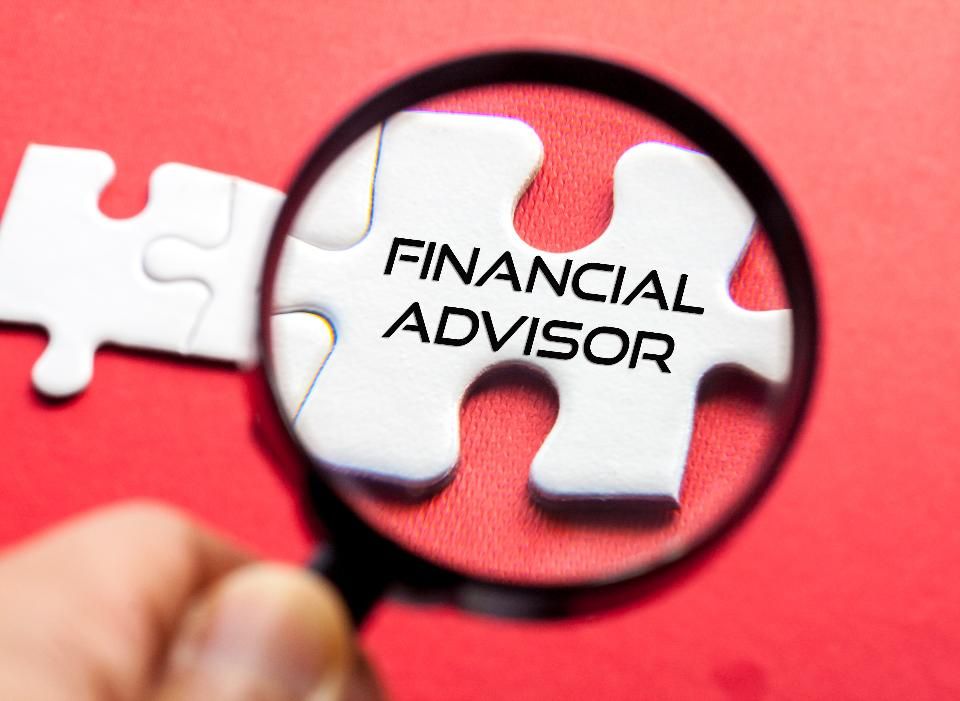Seeking out expert advice from a financial advisor can offer helpful insights and assist you in making decisions when it comes to managing your finances. But selecting the best financial advisor necessitates serious thought.
#1. Assess Your Investment Goals and Needs:
Prior to selecting a financial advisor, it’s critical to define your investment needs and goals. Establish your financial goals, risk tolerance, time horizon for investments, and any special needs you may have. This clarity will make it easier for you to identify a financial advisor who fits your specific needs.

#2. Different Types of Financial Advisors:
Recognize the many adviser categories, such as chartered financial analysts (CFAs), certified financial planners (CFPs), and registered investment advisors (RIAs). To find the best adviser for your needs based on services supplied, research their experience, areas of specialization, and services they offer.
#3. Consider the Fiduciary Duty:
Understanding a financial advisor’s fiduciary duty is essential when making a decision. Legally required to operate in your best interest and give consideration to your financial security are fiduciary advisors. Choose advisors who uphold the fiduciary standard because they are required to offer objective advice and suggest acceptable assets.

#4. Experience and qualifications for research advisors:
Examine a possible financial advisor’s advisor experience and credentials. Examine the candidates’ credentials, training, qualifications, and prior work experience in the industry. Take into account the advisor’s track record, tenure in the field, and experience managing customers with comparable financial needs.
#5. Look for Referrals and Recommendations:
Consult with people you trust who have used financial advisors successfully, such as friends, family members, or coworkers, for advice and referrals. To make sure the advisor is a good fit for your particular financial goals, take into account their advice and observations while also performing your own research.

#6. Interview People and Ask the Right Questions:
To determine whether a possible financial advisor is a good fit, set up interviews with them. Prepare a list of pertinent questions, such as their investment philosophy, risk management strategy, fee schedule, and frequency of communication. Pay attention to how they communicate with you, how quickly they respond to you, and how well they can explain difficult ideas.
#7. Assess the transparency and fee structure:
Before making a choice, be aware of the financial advisor’s charge schedule. While some advisors charge an hourly rate or a predetermined retainer, others charge a portion of the assets they are responsible for managing. Make that all fees are disclosed, including any possible conflicts of interest. Select a financial advisor whose price schedule fits into your spending plan and investing objectives.
#8. Think about the resources and network of the advisor:
Analyze the network and resources the financial advisor has access to. Access to research, business possibilities, and specialist knowledge can all be found through a strong network. Examine the advisor’s team and any links with prominent financial institutions that may improve the caliber of the advice given.
#9. Assessment of the Client-Advisor Relationship
A solid client-advisor connection is essential to effective investment management. Determine whether the advisor encourages continual contact and feedback and is really interested in learning about your financial goals. A successful long-term partnership requires a healthy connection and mutual trust.

#10. Verify Professional Credentials and Regulatory Compliance:
Verify possible financial advisors’ regulatory compliance and credentials. Examine their credentials, disciplinary record, and any customer complaints. To acquire this information, turn to sources like the Securities and Exchange Commission (SEC) or the Financial Industry Regulatory Authority (FINRA).
Conclusion:
Making the correct financial advisor selection is a crucial first step in realizing your investing objectives. You may make an informed choice by determining your needs, comprehending the many types of advisors, taking into account fiduciary obligation, doing extensive research, and weighing elements like credentials, experience, fees, and client-advisor relationships.
Happy Investment ……..!
balajimuthal.com
Read more: Navigating Your Investment Journey: Choosing the Perfect Financial Advisor for Your Needshttp://balajimuthal.com/2023/07/11/investing-in-infrastructure-exploring-opportunities-and-overcoming-challenges/
-

The Best Ways to Travel as a Digital Nomad: Balancing Work and Adventure
Digital nomads choose a lifestyle that blends work and travel, making the entire world their office. This blog article will examine the most effective ways to travel as a digital nomad while providing helpful advice and thoughts on how to design a journey that balances your job and personal life. #1. Seize the chance to… Read more
-

Investing in Infrastructure: Exploring Opportunities and Overcoming Challenges
Infrastructure offers exceptional chances for investors to support economic expansion while pursuing steady returns. Understanding the advantages and disadvantages of infrastructure investments is crucial, though. We will go into the area of infrastructure investing in this blog article, examining the potential benefits and addressing the difficulties. We seek to offer insightful information from an investing… Read more
-

The Best Places to Visit for Nature Lovers: Exploring the Wonders of the Natural World
Nothing is more thrilling for nature enthusiasts than losing themselves in the beauty of the surrounding environment. We will take you on a journey to some of the top locations in this blog article that provide stunning scenery, a variety of ecosystems, and unique wildlife experiences. #1. Yosemite National Park, USA Learn about Yosemite National… Read more
-

Art and Culture Exploration: The Best Destinations for Immersive Experiences
Exploring art and culture is a fascinating approach to learn about the rich history and artistic expressions of people. #1. Paris, France: The City of Art and Romance Art lovers will find Paris to be a sanctuary with its world-famous institutions like the Louvre and Musée d’Orsay. Admire works of art like the Mona Lisa… Read more




Nifty!
Yes exactly